All of Salewa’s technical mountain range is ‘engineered in the Dolomites’, to borrow the phrase that adorns much of the brand’s kit. And in this instance, it’s perhaps more than just marketing. Because the Ortles Light Powertex Mid does seem like a perfect walking boot for tackling the steep, rocky crags and pinnacles for which the Dolomites is famous.
Designed to be lightweight and agile, yet also technically capable on demanding terrain, including snow and ice, this is a crampon-compatible mountaineering boot that offers precision and stability.
That sounds like an impressive package, with plenty of qualities to make it a versatile option. But how did it fare on test in the mountains of North Wales?
Pros
- Lightweight
- Precise and agile
- Competitively priced
Cons
- Limited cushioning
- Not the stiffest
- Not the warmest
| RRP: | £275 / $299.95 |
| Sizes: | Men’s UK 6-12.5, women’s UK 4-9 |
| Upper: | Elasticated mixed PA/PE gaiter, nylon upper fabric with TPU thread stitch and rubber rand |
| Waterproof lining: | Powertex |
| Weight: | 600g /21.2 oz (per boot, UK 8) |
Design and features
Just like climbing a mountain, we’ll start from the bottom and work our way up. So, the Ortles Light Powertex Mid boot is built on a Pomoca Alpine Light outsole. Pomoca is Salewa’s preferred partner when it comes to sole units for its technical footwear – both brands are owned by the Oberalp group.
What this means is that, unlike a lot of rival brands that use standard tread patterns from third party manufacturers like Vibram, you won’t find this sole pattern on anything other than a Salewa boot.
Whereas Salewa has German/Italian roots, Pomoca is actually a Swiss brand. It is best known for manufacturing climbing skins for skis, but it also makes a wide range of rubber outsoles.
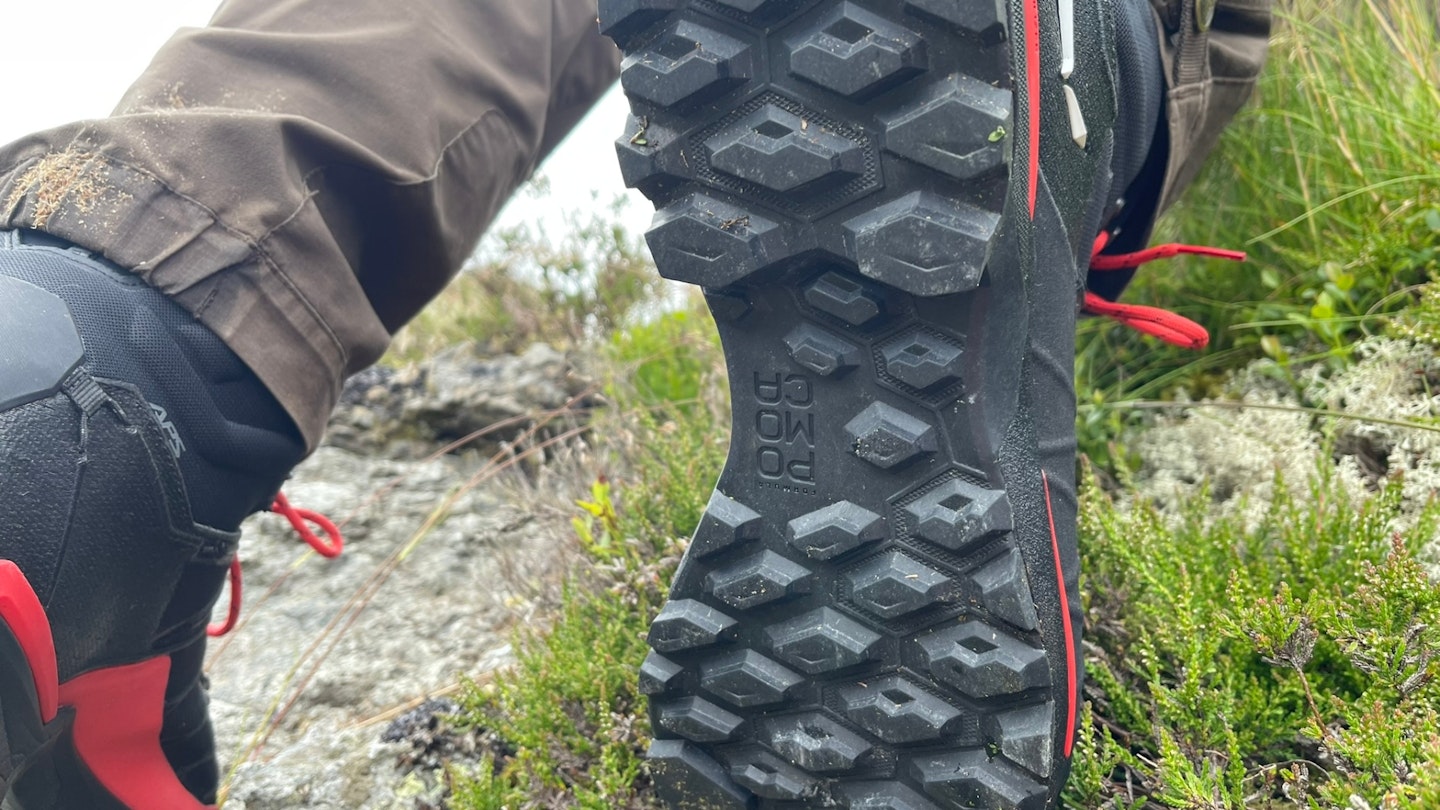
The Alpine Light sole combines angled lugs with a fairly prominent undercut heel brake. Blocky sections at the heel and toe provide contact grip and better stability when ascending/descending.
The front climbing zone under the toe in particular is intended for finding secure placements in small rock pockets, crevices and ledges.
Meanwhile, the midsole of the boot is made from EVA foam rubber, with a partial shank to provide added stability when climbing and scrambling, as well as sufficient stiffness for fitting a crampon. A rear heel stabiliser has a small heel welt that will accommodate most C2 semi-automatic crampons.
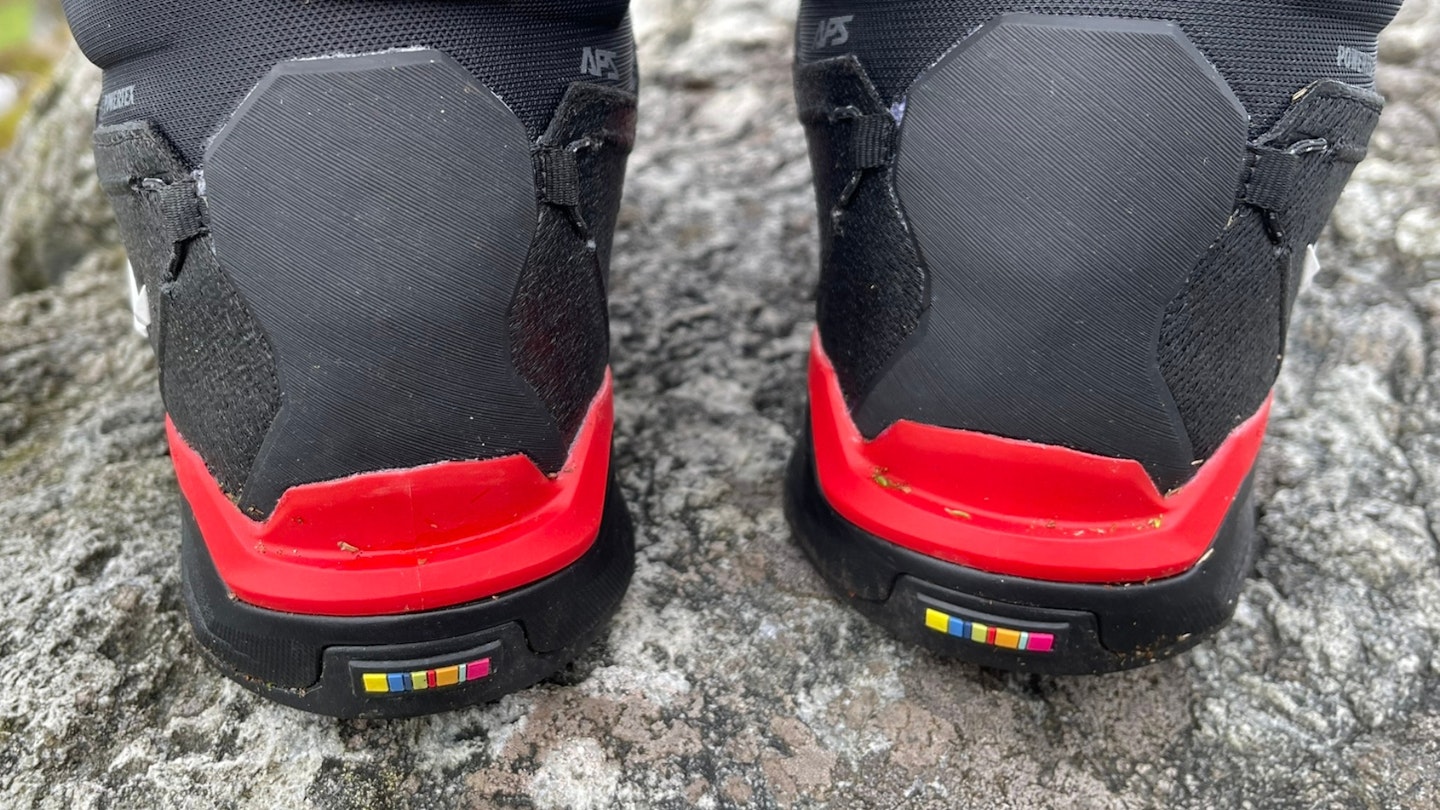
The insole is the same Multi Fit Footbed Plus (MFF+) that is supplied with all of Salewa’s footwear. It’s a step up from the flimsy insoles that comes with most boots and features an additional insert that enables the user to adjust the internal volume of the boot for a closer fit.
When it comes to the upper, the tough nylon fabric is reinforced with high-tenacity, abrasion-resistant, protective TPU stitching. There’s a robust toe cap and heel counter, while the midfoot has a lightweight laminate overlay that offers similar protection to a full rand but at a much lower overall weight. It’s backed with Salewa’s in-house Powertex waterproof-breathable membrane.
Salewa’s 3F technology increases support and stability at the heel area, employing a cord and webbing system that is connected to the main lace eyelet at the base of the ankle. This helps pull everything in tight to eliminate heel slip.
Up top, a padded ankle protector wraps the foot, guarding against impact from rock and scree. So too does an elasticated stretch fabric gaiter, which closes with a Velcro tab to keep out trail debris and grit, as well as some snow in winter. This means that despite only being a mid-height boot, you get a surprising amount of overall protection.
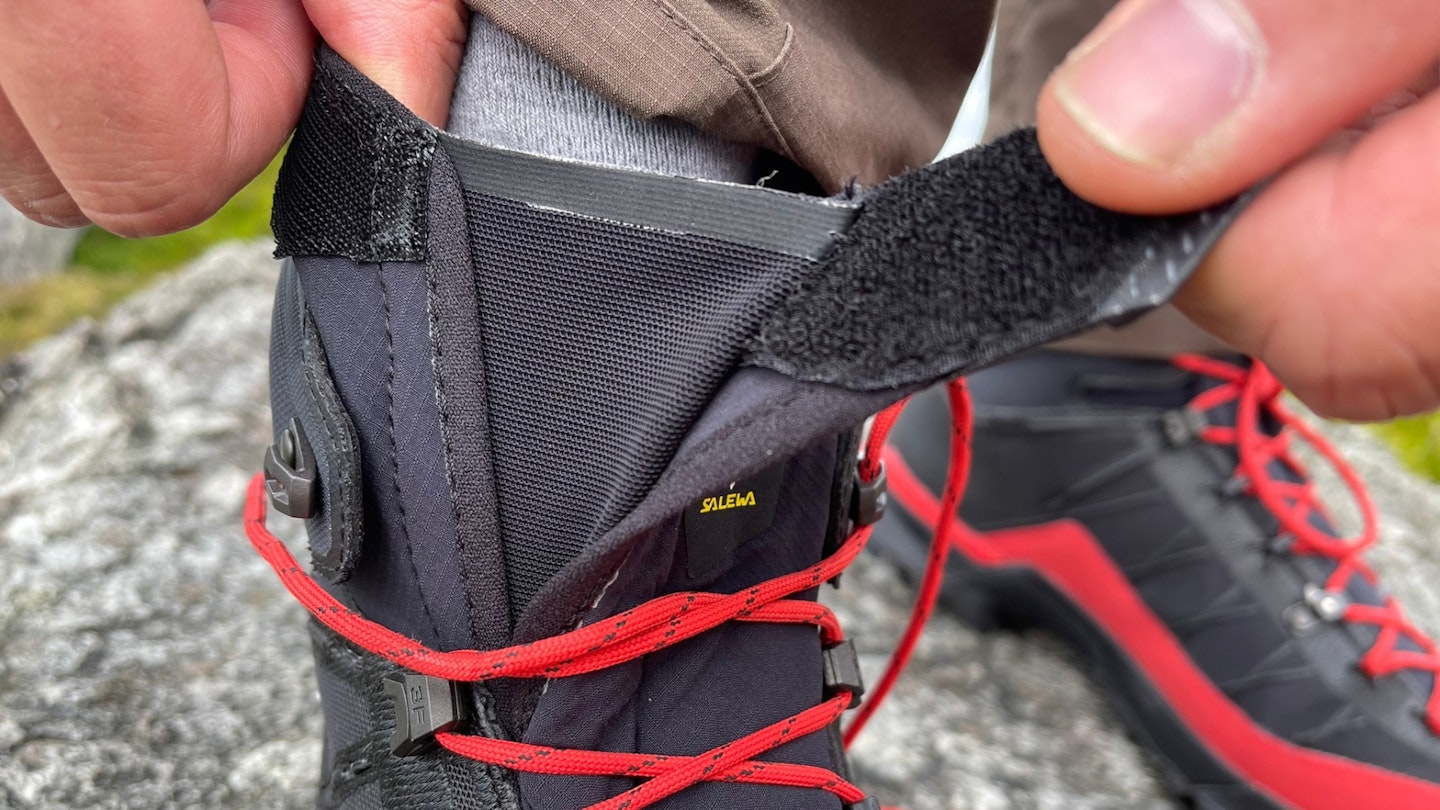
There’s a handy pull tab at the heel, which makes it easier to pull the boot on and off. That’s just as well since the close-fitting design would otherwise make this a struggle. The tab tucks away neatly into a loop pocket, which might be a bit superfluous but certainly makes for a streamlined profile.
The lacing extends right down to the toe, with locking lace hooks placed halfway up the vamp. This means you can keep everything locked in towards the toe, without needing to put too much pressure on the top of the foot.
The upper sets of lace hooks on the inside of the boot also have captive, closed metal loops to thread the lacing through. Once tied, this makes it impossible for the laces of one boot to catch on the hooks of the other and pose a trip hazard, which could be a critical issue on steep or exposed ground. It’s a great feature that should perhaps be adopted by more bootmakers.
Performance and comfort
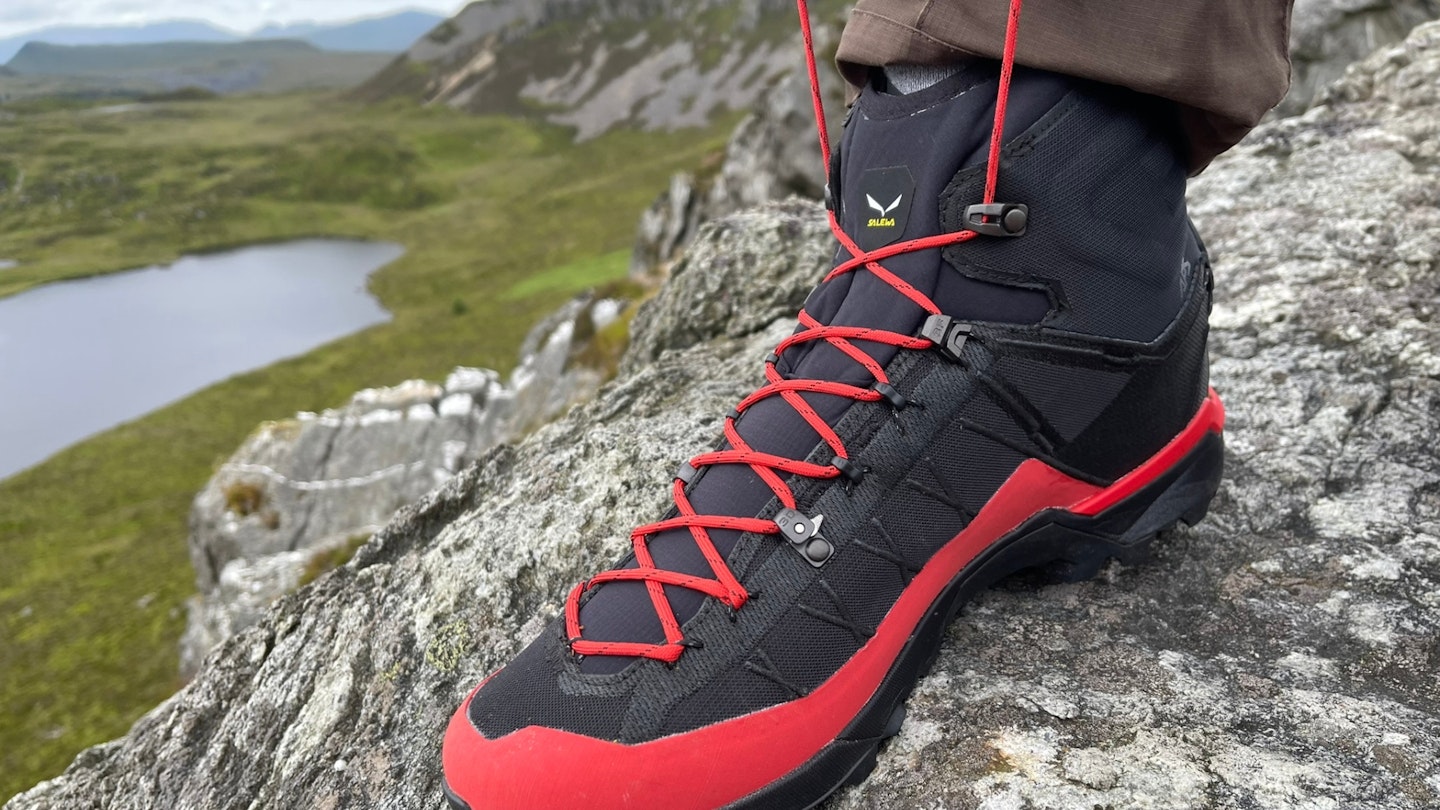
This is a boot that is primarily designed for Alpine mountaineering in mixed terrain of rock, snow and ice.
Since Trail and LFTO wouldn’t pay for us to take a summer trip to the Alps (I know, right?), we were restricted to testing them on ridge walks and scrambles in our adopted home of North Wales. Still, Snowdonia is a great proving ground for scrambling kit, and these boots were more than fit for the task.
Their major USP over many rivals is their nimble and agile feel. Partly this is down to their lightweight build, but the low-profile build and close, precision fit is almost like wearing an approach shoe rather than a B2 boot.
It makes it easy to know exactly where you’re putting your feet, which is ideal for negotiating more technical terrain. And though they’re not as stiff as more traditional B2 boots, they’re still stable enough to provide a secure platform when finding small edges and pockets amongst rocks and boulders, or for clambering up steep gullies.
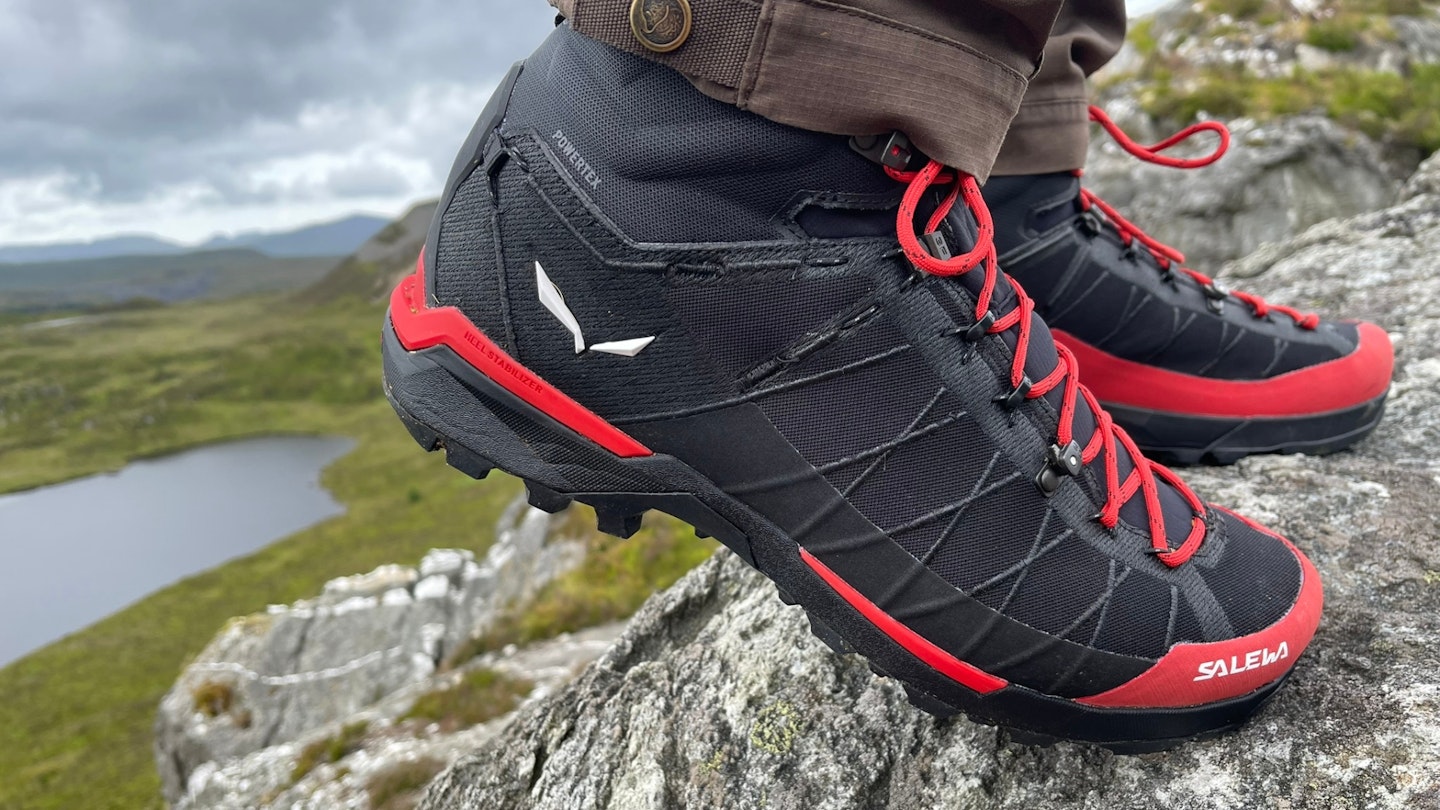
However, it’s worth noting that the fit is fairly narrow in the midfoot. This is a big part of that close, locked-in, approach-shoe style feel, but it probably won’t suit those with wider feet.
The low weight is a plus for comfort, since they’re not tiring to wear – you don’t feel heavy-legged after a tough, sustained scramble. The midsole also just flexes enough to make for a pleasant walking action – they’re not as board-like as many traditional B2s.
On the other hand, with such a lightweight boot, something has to give – and in this case, it seems to be underfoot cushioning. Now, a mountain boot will never offer the same degree of plushness or bounce as a trainer-hiker, but these are more spartan than most.
If you’re planning a big mountain day that will involve a lot of miles on hard ground, these probably wouldn’t be our first choice – or we’d at least wear our most cushioned hiking socks and add a thicker insole before we laced them up.
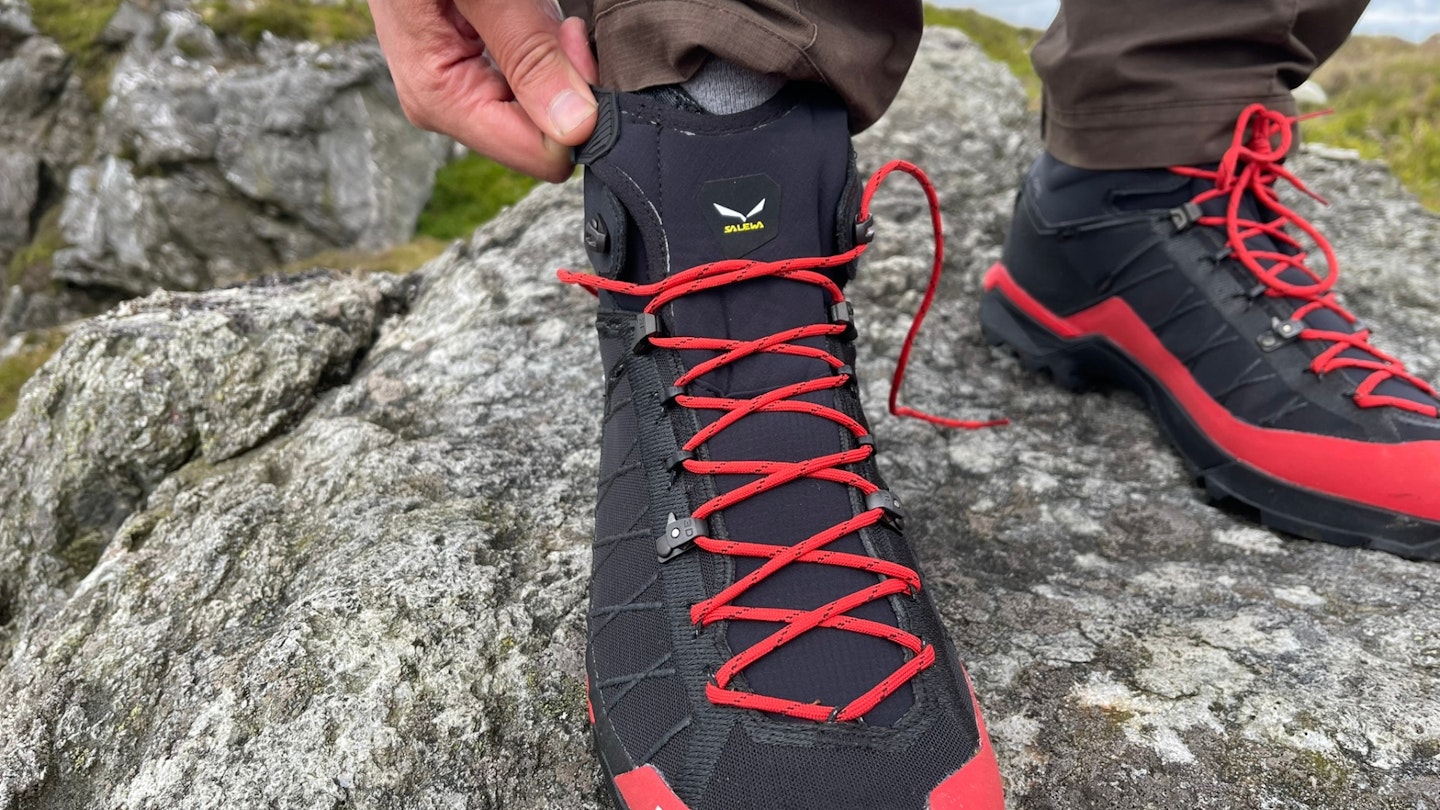
When fitting 12-point semi-auto crampons to these boots, we also noted that the fit didn’t seem quite as good as with some rivals. That’s probably because the rear heel welt is relatively small and the material is quite soft. It does the job, just, but doesn’t offer as secure a lip as a larger, more crisply moulded hard plastic insert.
Nor are these the warmest boots. They’re fine for summer alpine use and for general mountaineering, but in winter – despite the fact that they’ll take a crampon – there are certainly better-insulated options around.
Having said that, the Powertex liner kept our feet dry, and the stretch gaiter ought to help stop melting snow and ice from seeping into your socks, so your feet shouldn’t get wet. Still, if you suffer from cold feet or spend a lot of time trudging through snowpack, we’d advise you to look elsewhere.
Sustainability
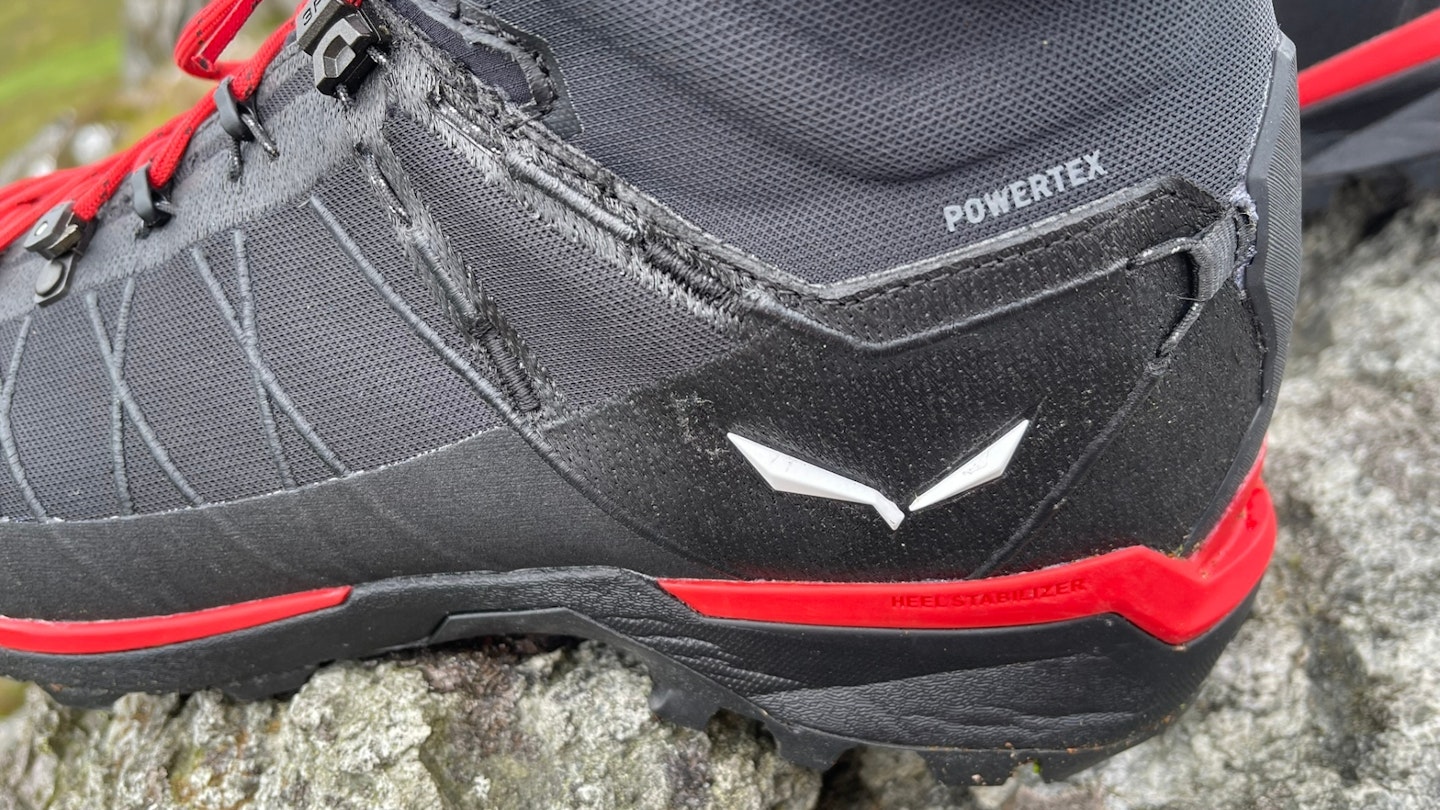
The Ortles Light Powertex Mid scores pretty well for sustainability. In fact, it’s the first-ever mountaineering boot to bear the Salewa Committed icon – the brand’s tag for products that are manufactured according to a strict set of socially and environmentally responsible criteria.
This means that the product should avoid harmful chemicals including PFCs, main fabrics and/or materials should be bluesign certified, and production/manufacturing facilities should have been audited for social standards and working conditions by a third-party with the last three years.
In this case, for example, the Ortles Light Powertex Mid has a Powertex PFC-free membrane, laces made of recycled materials and further recycled components for a lower environmental impact. These particular boots are made in Vietnam though, which presumably adds to their carbon footprint compared to European-made rivals.
Price and competition
With an RRP of £275 ($299.95), this is hardly a budget boot, but price wise, it actually undercuts most of the competition we tested. In that regard, it’s a very good value boot.
The only caveat to that might be that Salewa products aren’t the easiest to get hold of currently, at least in the UK. That’s because, post-Brexit, the brand has halted shipping to the UK.
Still, a simple Google search revealed that you can buy these boots from various UK online outdoor retailers for as little as £165 (admittedly, in limited sizes). That’s a bona fide bargain for a technical mountain boot that is also crampon compatible.
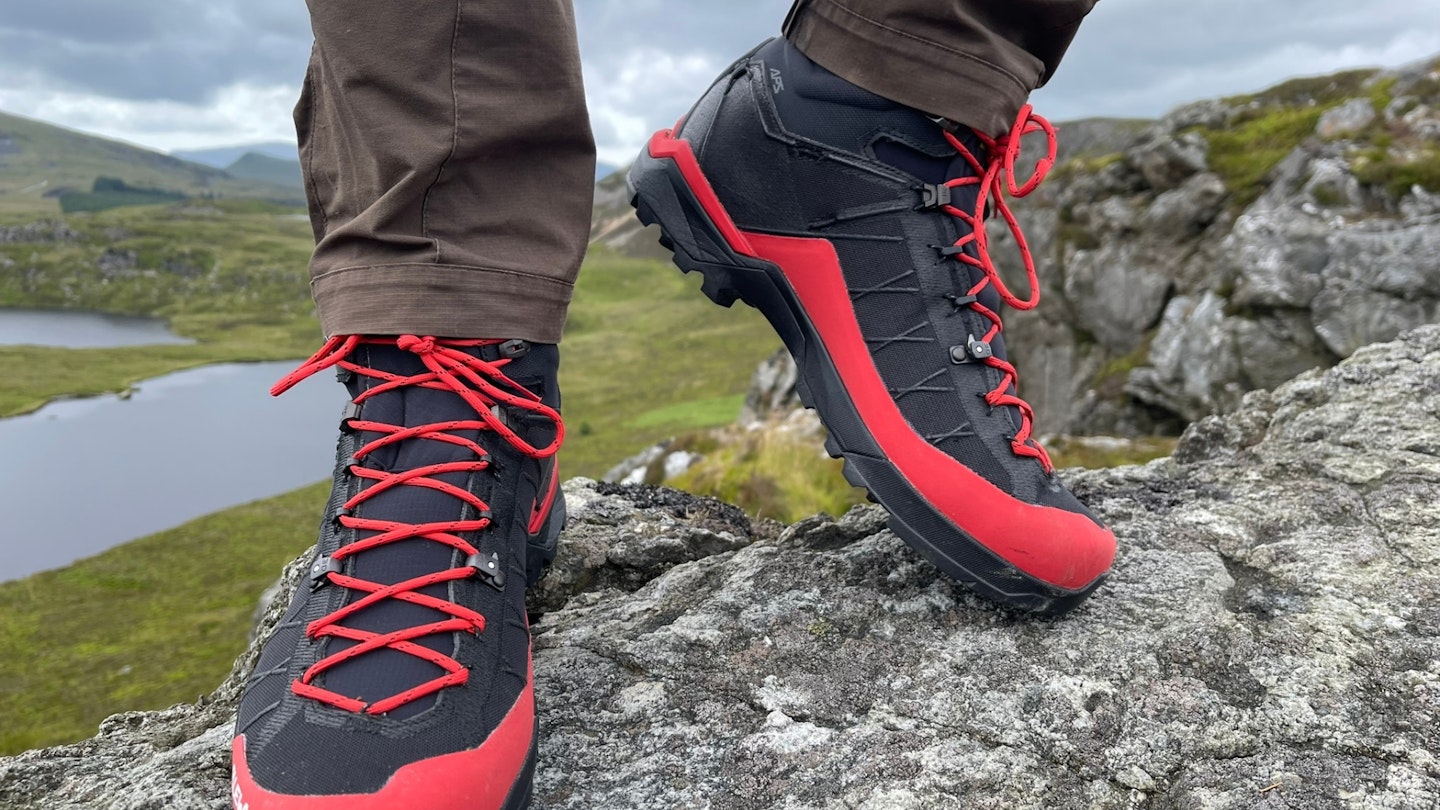
If you want a similarly lightweight cramponable boot, your best bets are either the Mammut Taiss Light Mid GTX or the new Danner Crag Rat Evo. Both of those rivals are nearly £100 more expensive than the Salewas though.
If you’re prepared to sacrifice some of that precise feel, steep ground performance and low weight for improved walking comfort, then look at the Hanwag Makra Pro or the Scarpa Zodiac GTX.
The La Sportiva Trango Tech GTX or our 2023 best in test-winning La Sportiva Aequilibrium LT GTX are other alternatives that are good all-rounders in this category.
Lastly, if you want a more traditional style B2, then the Salewa Ortles Ascent Mid GTX is a brilliant winter boot. You’ll have to bump your budget a bit though, as it’s £355 ($399.95).
Verdict
The Salewa Ortles Light Powertex Mid is a good boot for fast and light mixed mountain days on rock and ice. There are warmer, stiffer and burlier boots for dedicated winter use, but for value, these can’t be beaten.
Shop this product
About the author

Matt Jones is a freelance journalist based in the heart of Snowdonia National Park, he’s a vastly experienced gear tester and self-confessed outdoor kit geek.
Matt’s been one of our main gear testers for the last couple of years and is the first person we call with any complicated kit queries that need in-depth and forensic analysis.




